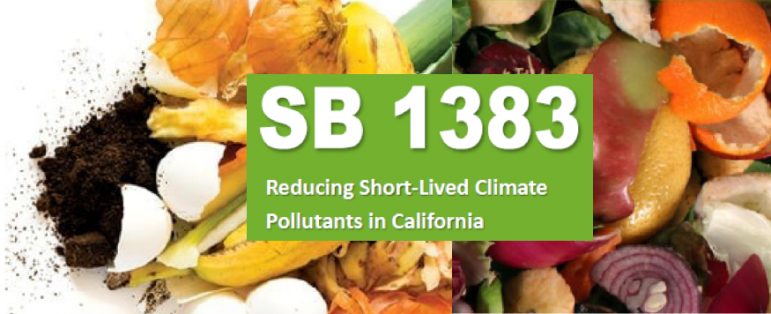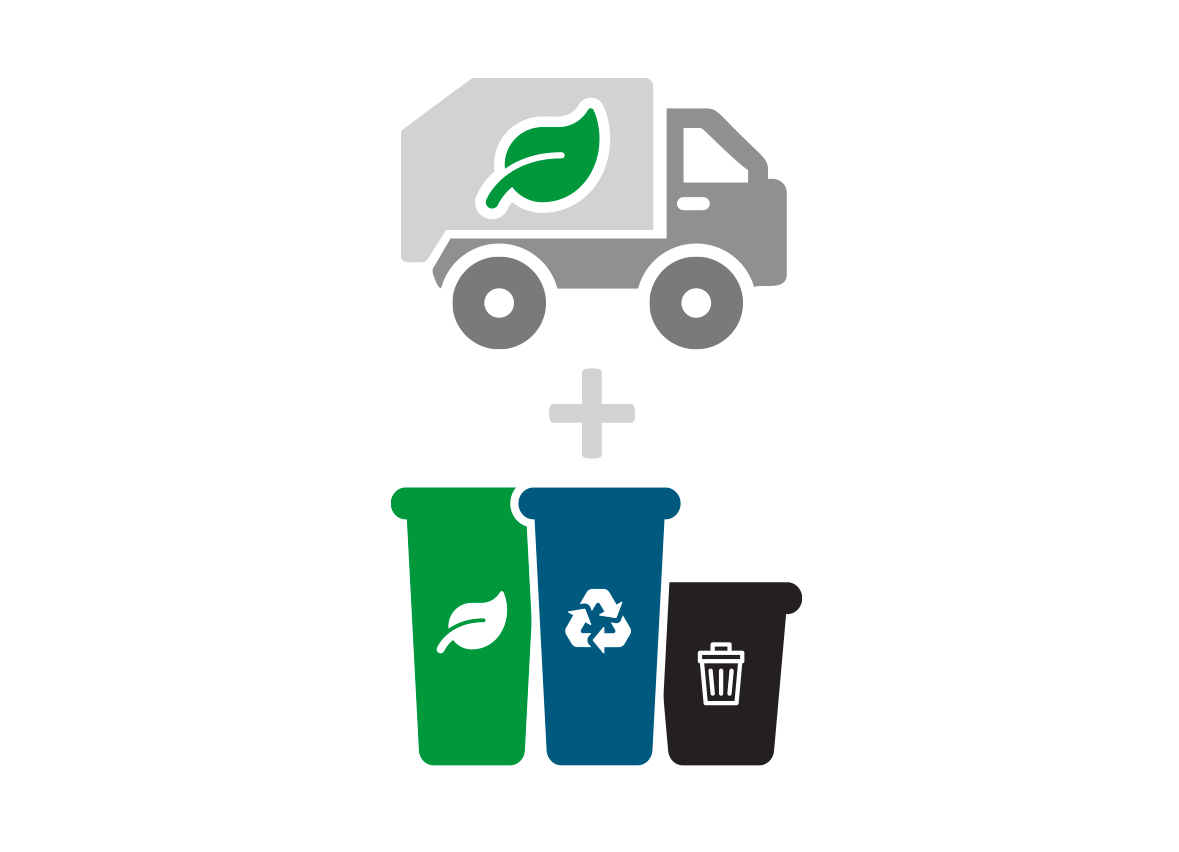Effective January 1, 2022, SB 1383 will require residents and businesses to divert organics from the landfill.
On January 1, 2022, a new California State law, Senate Bill 1383, goes into effect requiring that compostable materials (“organics”) be kept out of landfills—including food scraps, paper, cardboard, and plant trimmings—to prevent the production of methane, a potent greenhouse gas.
Under the law: edible food currently thrown away must be recovered and donated for people to eat; the remaining organics must be collected for composting; and recyclables must also be kept out of the landfills.
In Alameda County, the law is being implemented under the Organics Reduction and Recycling Ordinance, through a partnership among local jurisdictions, garbage service providers, StopWaste, and the Alameda County Environmental Health Department.
The new law affects all generators of organic waste, including: residents in single-family homes, apartments, and condos; businesses, institutions, and non-profit organizations; multifamily property owners; schools (public and private); and government agencies. Fortunately, Piedmont residents are already provided with curbside recycling and organics/compost collection bins. If you don’t have the service or containers, contact Republic Services at 800-320-8077. Additionally, Piedmont residents can request a free 1.5-gallon kitchen scrap pail by contacting awensley@piedmont.ca.gov.
Under the law, residents must sort recyclable materials (carboard, paper, bottles, cans) and compostable materials (food scraps, compostable paper, plant waste) into the appropriate containers (blue container for recycling, green container for composting, and black container for garbage). Businesses, institutions, nonprofits, and multifamily property owners/managers must subscribe to compost/organics and recycling collection service. In addition, sites must set up labeled and color-coded recycling and compost bins and educate employees, contractors, and tenants about the law. Certain food-generating businesses must also donate surplus edible food.

The State law aims to reduce methane emissions, which are emitted into the atmosphere when compostable materials like food, paper, and yard waste are buried in landfills instead of composted or recycled. When food scraps and yard trimmings are sent to a composting facility instead of a landfill, they are turned into compost, a valuable resource farmers and gardeners use to build healthy soil and grow healthy food. The State law aims to reduce organics going to the landfill by 75% by 2025. The law also sets targets to recover and donate edible food. That’s because much of the food currently thrown away in California is perfectly good to eat and could feed people instead of going to waste or even composting. Setting up systems to make this high- quality food available for people to eat will not only cut greenhouse gas emissions, but also alleviate food insecurity in our communities.
If you don’t already have service, contact Republic Services at 800-320-8077. For more information and free resources, visit www.StopWaste.org/Rules.

What are we supposed to do with used cat litter? I am in alameda co. I put cardboard and paper in blue can, cat liter and styrofoam in garbage can and yard waste and shredded paper in green can, so now I need another bin for food scraps?
Please continue to place used cat litter in the garbage/landfill can. You can combine your food scraps with your yard waste in the green can. Piedmont residents can also receive a free kitchen food scrap pail (1.5 gallons in size). More information can be found here: https://www.piedmont.ca.gov/services___departments/public_works/recycling_organic_waste_garbage/organics
How does this affect horse manure? We consider it compost when mixed with dried leaves on our property. It’s a very valuable form of fertilizer that is loaded with nitrogen. It’s not necessary for artificial/ chemical forms of nitrogen to be sold to the public when they can reuse a natural product such as horse manure.
Indeed, horse manure is great composting material and organic fertilizer. Continue to carry on composting at home with it.